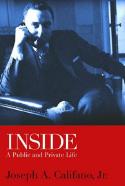Issue Date: July 2, 2004
Reviewed by RICHARD P. McBRIEN The current pressure on Sen. John Kerry and other Catholic politicians from fellow Catholics on the political and ecclesiastical right is not a new phenomenon. Ever since the 1973 U.S. Supreme Court decision Roe v. Wade, abortion has become a highly sensitive political as well as moral issue within the Catholic church. Catholic politicians -- mostly liberal Democrats but also a few moderate Republicans -- have found themselves under a special kind of fire since the mid-’70s. In the mind of their Catholic critics, Roe v. Wade (1973) was an illegitimate decision, and Catholic legislators and executives are still bound by the moral principle that abortion is tantamount to murder and, as such, always to be prevented at whatever cost. However, once the Supreme Court had determined abortion to be a constitutionally guaranteed right, Catholic legislators were faced with the dilemma of either upholding their oath of office to enforce the law regardless of their personal beliefs or of subordinating the laws of the land to the teachings of their church. The issue arose following Roe v. Wade in the confirmation hearings that were to decide whether Joseph A. Califano Jr., a Catholic, would become secretary of the Department of Health, Education and Welfare in the new Carter administration, beginning in January 1977. Califano writes about those hearings -- and more -- in his new book, Inside: A Public and Private Life. He notes that President Carter had made his own view clear during the campaign. He opposed federal funding for abortion unless the life of the mother was at stake. Califano agreed with him. By this time, however, Medicaid was paying for 300,000 abortions a year. Rep. Henry Hyde of Illinois, a conservative Catholic Republican, had thrown down the legislative gauntlet in the form of an amendment to prohibit the use of such funds except where the life of the mother was in danger. Just before his confirmation hearings opened, Califano consulted Jesuit Fr. James English, his pastor at Holy Trinity Church in Georgetown, who told him that in our democratic and pluralistic society he was free to express his own views on abortion, but if another view prevailed, he could in good conscience enforce the law. The pastor recommended that he seek a second opinion from one of the Catholic church’s leading moral theologians, Jesuit Fr. Richard McCormick, who was teaching at the time at the Kennedy Institute of Ethics at Georgetown University. Califano reports that McCormick offered the same advice as his pastor had. Once in office, and contrary to the editorial position of The Washington Post, Califano adhered to a minimalist approach to the funding of abortions. However, because the law permitted the funding of abortions in the case of rape and incest if they were “promptly reported,” he issued regulations giving women 60 days to make such reports. He did so because he believed that women would be reluctant to report such incidents unless they thought they were pregnant. “The Catholic hierarchy erupted,” Califano writes in his book. Later in his first year as HEW secretary, he also issued new rules to restrict federal funding for sterilizations and to make sure that no sterilizations were performed without informed consent. There were to be various exceptions to the rule, but within the parameters the secretary laid down. Once more, the bishops voiced their displeasure because they favored a complete ban on sterilization. “Here again,” Califano writes, “I had to weigh my personal beliefs against my obligation to issue regulations consistent with congressional policies and American pluralism.” With many of the bishops questioning the secretary’s decision, Califano’s pastor suggested that he sit down with the then-archbishop of Washington, Cardinal William Baum, to help Baum and the other bishops better understand his position. A dinner was arranged with the cardinal, English and McCormick. Baum seized the occasion to chastise Califano for not restricting abortion even further in cases of rape and incest, for not banning all forms of federal funding of sterilizations, and for opposing tax credits for tuition paid to Catholic schools. Califano writes that, carried to its logical conclusion, Baum’s argument was that “Catholics must adhere to the positions of the church or resign from public office.” “I pointed out,” he writes, “that such a position would disqualify all Catholics from the HEW post and thousands of other positions in local, state and federal government. My arguments about serving in a pluralistic democracy fell on deaf ears.” Some of those hierarchical ears seem deaf even today to the realities of a pluralistic society and to the complexities of applying moral principles in the political order. Joseph Califano’s reflections upon this and his many other experiences, both public and private, are at once instructive and timely, especially in today’s ecclesiastical and political environments. Fr. Richard McBrien is the Crowley-O’Brien professor of theology at the University of Notre Dame and an NCR columnist. National Catholic Reporter, July 2, 2004 |
